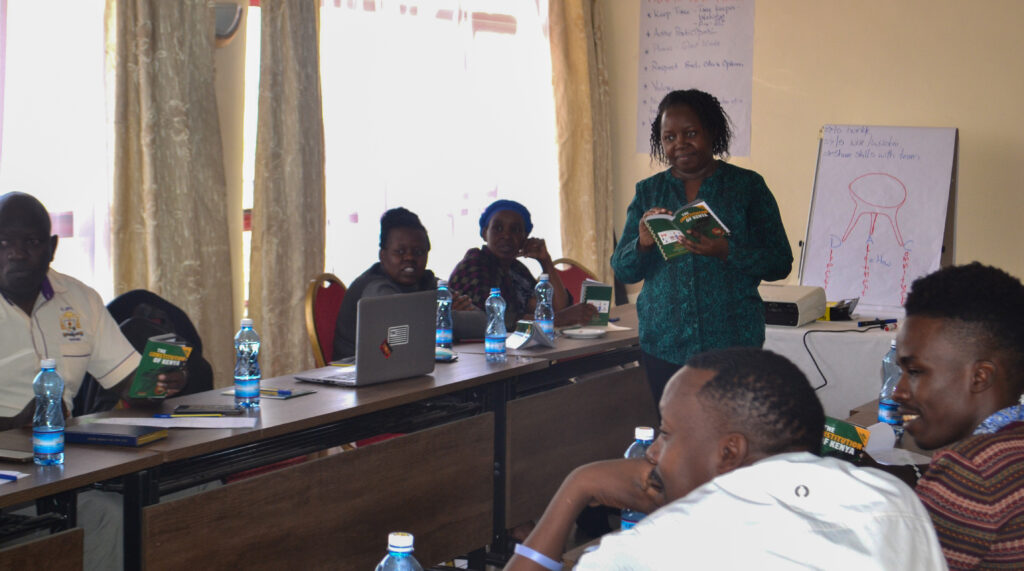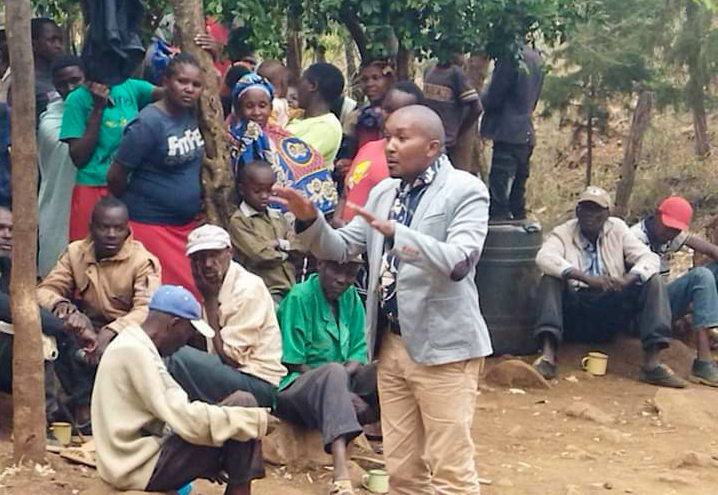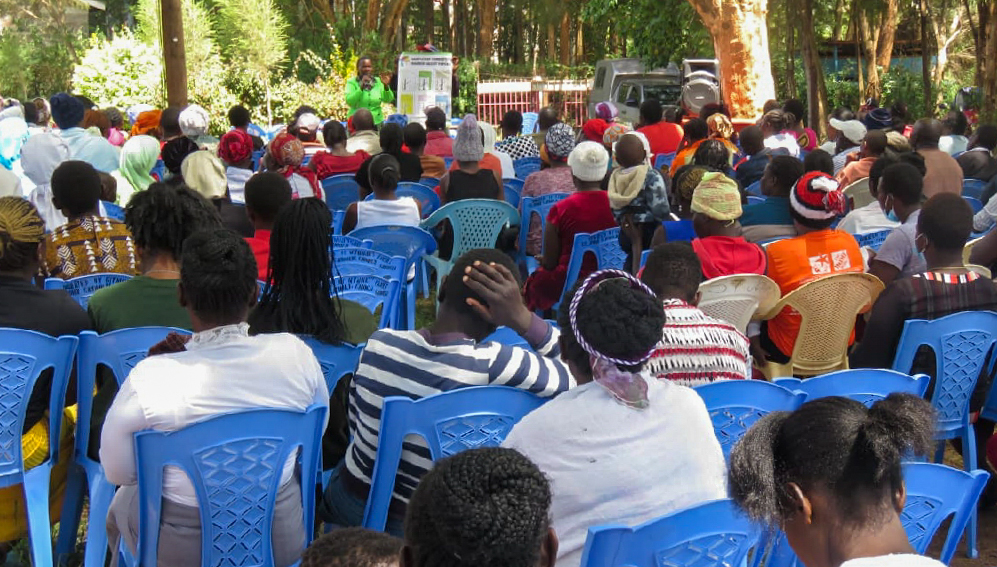Jane Wakaba, addressing the crowd, during one of the civic and voter education sessions in Waseges. Photo: CTL.
A disinformation campaign, carefully crafted to discredit independent candidates, spread widely in Waseges, Nakuru, ahead of 2022 polls, threatening to suppress voter turnout in the ward.
A barrage of falsehoods claimed that if elected, the independents would be subservient to those allied to political parties.
“Some voters believed independents had the best manifesto compared to partisans,” Bancy Kubutha, the executive director of the Center for Transformational Leadership-Kenya (CTL), said.
“However, when voters were deceived that independence doesn’t translate into meaningful legislation, many said they would rather stay away from the ballot than give the process legitimacy, an act that would have affected the turnout.”
Kenya conducts elections for six positions: President, governor, senator, woman representative, and members of national and county assemblies. A lack of interest in choosing one leader can cause low voter turnout among eligible electorates.
Such was the case towards the August 9, 2022, vote in Waseges—a race that attracted seven candidates, four backed by political parties and three independents.
Gullible voters
Elijah Murage, one of the independent candidates, said the disinformation affected his campaign.
“This narrative pushed people into believing that I would be a lame duck MCA if they elected me,” he said. As a result, he said, some of his supporters saw no need to vote.
At the time, concrete information was hard to come by, and gullible voters were manipulated to believe elected independents won’t drive meaningful change in the assembly.
And that is when CTL stepped in, Kubutha said, to put facts straight and urge people to vote.
“We scouted 10 opinion leaders—five men and five women—and in May 2022, trained them to be voter and civic educators,” the executive director said. CTL is a democracy-promotion organization based in Nakuru.

CTL’s training was about the roles of elected leaders, leadership and integrity, and election offenses, among others. CTL did this under the Kenya Electoral Conflicts Mitigation and Civic Education Support (ECCES) program, which USAID funds through Act! and Uraia Trust.
MCA’s roles demystified
One of CTL’s trainees was Jane Wakaba, aged 43.
CTL posted Wakaba at Waseges to counter the disinformation. She got down to work, demystifying the roles of MCAs.
“People had become apprehensive of independent candidates,” Wakaba said, noting “it took much effort to cut through the campaign noise and educate them”.
“My message to them was simple: there is no difference between a candidate elected through a party and an independent. All have the same legislative roles and powers.”
Wakaba carried out her messages for four months up to the last week before the ballot, reaching 455 voters in Waseges, most of them youth, women, and people with disability. The group, Wakaba said, would pass down the information to others—from churches to markets, sports centers to learning institutions—creating a multiplier effect.
A chief in the Gakingi location in Waseges, Ronald Amalemba, noticed Wakaba’s effort and effect.
“Our people needed to know what MCAs are elected to do and what qualities to check. It enabled them to assess all candidates and know which one is most suitable for the job,” Amalemba said.
Independent elected
After months of campaigning, Waseges reached a historic moment in the 2022 election. Against all odds, a youthful independent candidate—in his first attempt—pulled off a rare win.
Murage, aged 34, trounced six opponents to bag 4,525 votes out of a possible 15,668, taking over from then-incumbent and second-placed Daniel Mwangi, who ran on a Jubilee Party ticket. Mwangi polled 3,775.
The ward registered a 71.3 percent voter turnout, according to data from Independent Electoral and Boundaries Commission (IEBC), which was higher than the national, 64.77 percent.
“Countering disinformation surrounding independent candidates encouraged some people to come out and vote, consequently keeping the numbers high,” Kubutha said.
“Voters made their pick based on the character and merit of the aspirant, ostensibly after we clarified the roles of an MCA elected as an independent or through a party.”
Murage said voter and civic education by Wakaba helped change the perception electors had created about independents like him.
“It enabled voters to look at my capabilities, which is why many elected me,” Murage said.

Independents’ surge
IEBC, in May 2022, gazetted 4,738 independent candidates to run for ward seats in the August poll, compared to 3,339 who contested in 2017. In the 2022 election, 120 people won MCA positions as independents, up from 109 in 2017.
The ECCES program, which entailed conflict mitigation and voter and civic education, was not implemented in Nakuru alone. Starting in October 2021, the program covered 18 counties across Kenya, where other independents were elected, urging voters to cast ballots for leaders of integrity. ECCES reached out to youth and women, encouraging them to run for political office.
By Ernest Cornel.
ALSO, READ AND WATCH























